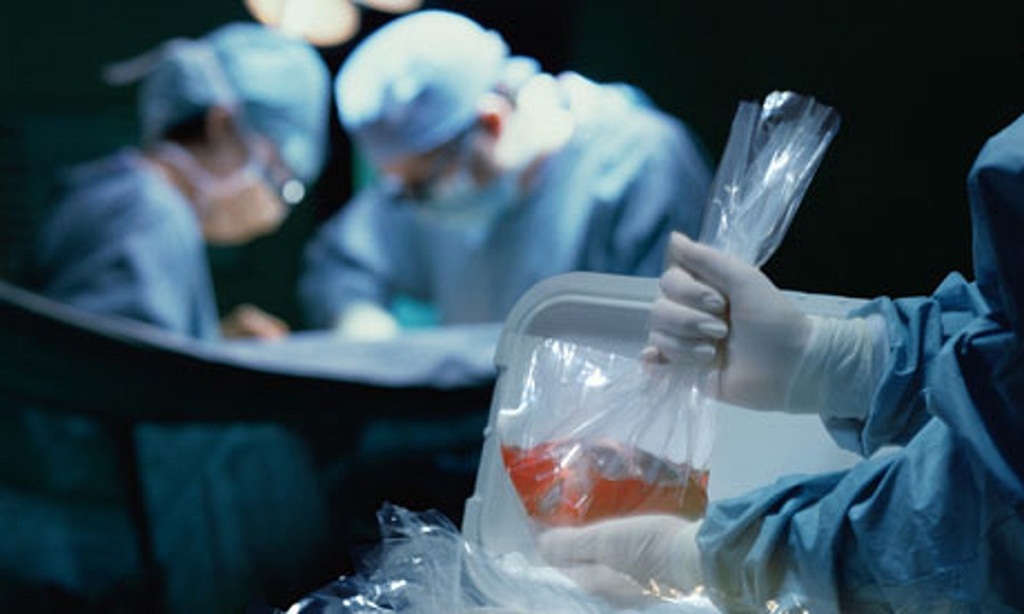
We’ve all seen those horror or science fiction films that depict a seedy underworld where organs are illegally harvested, then bought and sold on the black market. The stories are almost always full of corrupt, evil doctors taking advantage of poor people by stealing their organs or buying them at a low price, and then selling them to crooked, wealthy individuals. Is this the stuff of Hollywood, or does this really happen all around us, behind closed doors?
Organ donation is one of the most heavily regulated medical procedures in America. Not only is there a huge, intricate list that sorts out would-be organ recipients by need, condition, and length of time spent waiting, but to donate your organs you would have to undergo many different tests. Upon death, organ donors are usually subjected to rigorous assessments in order to confirm that life has truly ended for them. In addition to this, blood tests are given to filter out any potential dangers for the recipient, such as disease or incompatibility.
China’s Bad Rap
Unfortunately, other parts of the world are not as strict with organ donation, and several scandals have erupted as a result of this. In the past few years, for example, China has been subject to a few disasters. One of them regarded organs being mistakenly harvested from an HIV-positive donor. This error caused one of the five recipients to contract the disease, and resulted in up to 10 years of prison time for the medics involved.
Several years earlier, China was found to be using dead prisoners’ organs in nearly two-thirds of all organ transplants taking place across the country. Because Chinese tradition dictates that the body should always remain intact even in death, few Chinese residents agree to become organ donors. This led the country to harvest organs from executed prisoners, and an undercover report by the BBC revealed that these organs were not just being used to help the people of China – they were also sold for large sums of cash to foreign travelers who sought organs.
The U.S. Too?
The United States has had its own fair share of organ donor problems, even with the heavy regulation. The year 2008 brought with it a monumental case involving a doctor who was accused of hastening a comatose patient’s death in an effort to take his organs. To make matters worse, the patient’s mother originally didn’t want her son’s organs donated. It wasn’t until she was asked several times that the mother finally broke down and agreed to it.
Regulations state that surgeons cannot be present in the room to remove organs until five minutes after the patient’s final heartbeat. The rules become fuzzy when the patient is still technically alive, but death is imminent. In this case, the surgeon was present in the operating room even before death was declared, and even gave orders to administer frequent doses of morphine and antianxiety medication to speed up the death. This ended up backfiring though, because even after the patient was unhooked from his ventilator, he went on to survive for eight more hours. Even worse, nurses reported that the young boy was frothing at the mouth and shivering the entire time, and even in his final hours he was responding to human touch.
Don’t Let it Stop YOU
These are just a few examples of how things can go wrong in the world of organ donors. The sad part is that with each new horrible story, fewer and fewer people will want to register as donors. This comes at a time when the waiting list keeps growing and each precious organ transplant counts. As with everything else in life, there is always some element of risk. But when it comes to organ donors, the potential good can far outweigh the bad, and the intense scrutiny and regulations helps create a safe environment for everyone.
Cited Sources
Weijue, Yan. “Fears for Patients in HIV Donor Scandal.” ChinaDaily.com.cn. N.p., 2011. Web. 16 June 2012. <https://www.chinadaily.com.cn/china/2011-08/30/content_13223038.htm>.
“8 Arrested in Organ Transplant Scandal.” MSNBC.com. MSN. 5 Aug. 2010. Web. 16 June 2012. <https://www.msnbc.msn.com/id/38574867/ns/health-health_care/t/arrested-organ-transplant-scandal/#.T-DGSsXhehp>.
Smolowe, Jill. “Organ Donation Did: A Doctor Speed a Patient’s Death?” People.com. People Magazine, 5 May 2008. Web. 16 June 2012. <https://www.people.com/people/archive/article/0,,20196126,00.html>.
“China’s Organ Transplant Scandal.” TheWorld.org. PRI’s The World, 26 Aug. 2009. Web. 16 June 2012. <https://www.theworld.org/2009/08/chinas-organ-transplant-scandal/>.

A new study suggests that a widely used sugar substitute found in diet sodas, chewing gum, and low-sugar yogurt may elevate insulin levels. This could increase the long-term risk of heart disease. “Artificial sweeteners have infiltrated nearly all types of food, making it crucial to understand their long-term health effects,” said Yihai Cao, senior author […]

Diet Coke has long been a fan-favorite among soda lovers who want a fizzy, guilt-free alternative to traditional soft drinks. While its zero-calorie, zero-sugar label makes it seem like a healthier option, the reality is far more concerning. Despite its undeniable popularity, Diet Coke’s nutritional profile has raised red flags among health experts for years. […]

New study shows that embracing an anti-inflammatory, plant-forward diet can support cognitive function and help reduce the risk of dementia. What You Eat Shapes Your Brain The food you eat doesn’t just impact your body—it also affects your brain. Research suggests that eating an anti-inflammatory, plant-based diet can help improve memory, focus, and overall brain […]